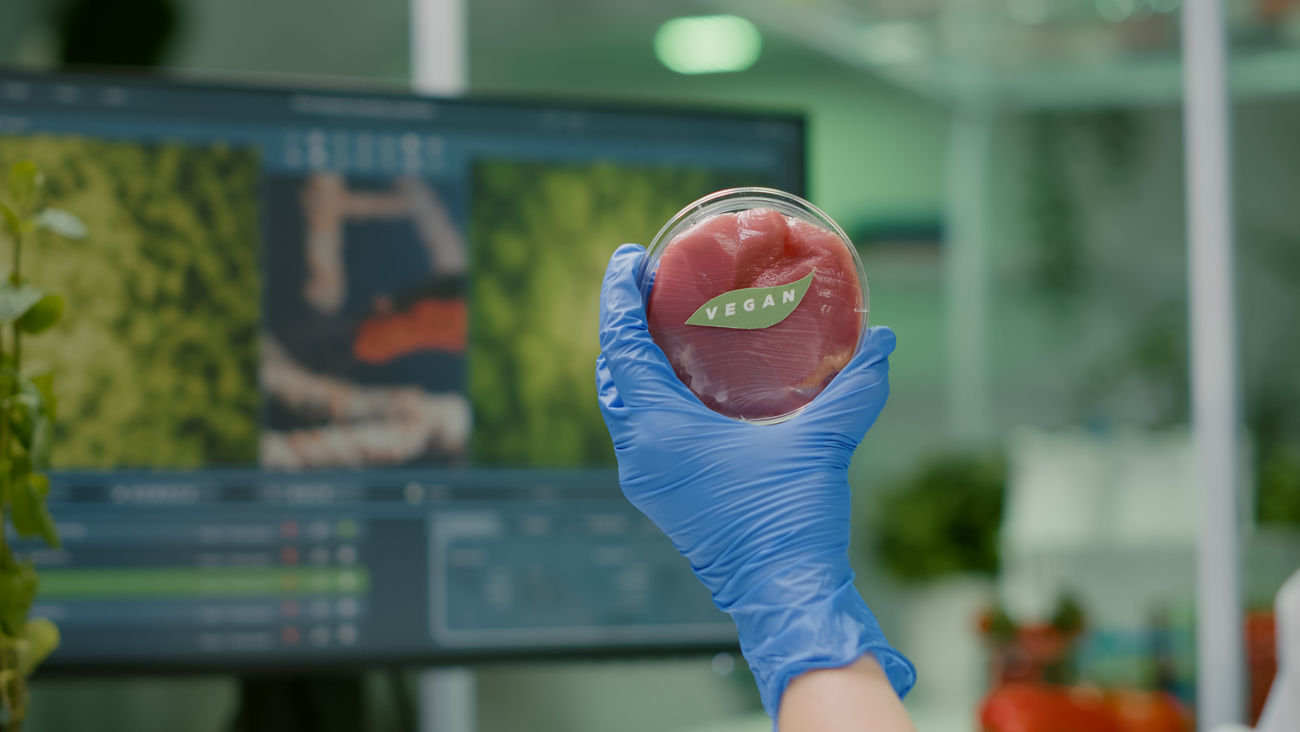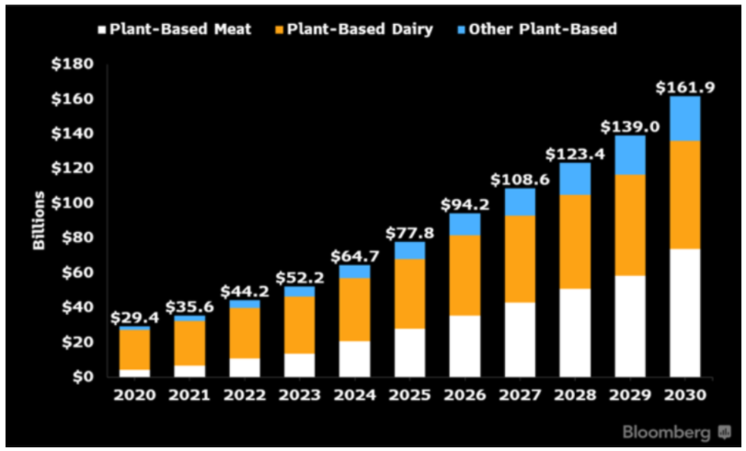Sustainable and Responsible Investing
Is the plant-based burger sustainable?

Sustainable and Responsible Investing


In a world increasingly reliant on animal protein, the United Nations Food and Agriculture Organisation estimates that livestock farming (meat and milk) is currently responsible for 9% of global CO2 emissions (25% for agriculture as a whole), the equivalent of the combined total of emissions produced by cars, planes and ships.
The contribution needed from the agricultural sector to limit global warming to a maximum of 2° C , as set out in the Paris Agreements, would require it to curb its CO2 emissions by two-thirds compared to 2010. However, the world’s population is growing (projected to reach 10 billion by 2050) and the demand for animal protein is increasing (projected to rise by 70% by 2050).* The question of the negative impact of intensive meat production is therefore quickly answered in environmental terms. It is also ethically important for many people who are sensitive to the treatment and fate of livestock. Not to mention the health implications of excessive meat consumption.
Concerns about the sustainable feeding of a growing world population are driving interest in plant-based products that can replace conventional proteins. Following the example of Beyond Meat (founded in 2009) or Impossible Foods, plant-based meat companies ─most of them American─ saw their sales take off from 2016-2017 and their share prices explode (+520% for Beyond Meat a few weeks after its IPO in 2019). According to a Bloomberg Intelligence report, the size of the meat and dairy alternatives market could increase fivefold to $162 billion by 2030. The market for plant-based meat has grown by 27% in one year in the US alone, and will be worth $7 billion by 2020.
* World Resources Report, Creating a Sustainable Food Future, World Resources Institute, 2019: https://research.wri.org/sites/default/files/2019-07/WRR_Food_Full_Report_0.pdf
Other food companies (production, distribution or catering), sensing commercial opportunities, typically target a consumer profile ─flexitarian or vegan─ seeking the sensory experience of meat, with its texture and shape, but on a vegetable protein basis. This growing interest is attributable to ethical, ecological and welfare motives. For Nestlé, for example, meat substitutes represent 700 million francs in sales, an increasing share of total food sales (11 billion francs in 2020). McDonald’s has very recently launched its own McPlant Burger. Even Tyson Foods and JBS, the world’s largest meat producers, which have been heavily criticised for their negative impacts on the environment, have jumped on board. In the field of responsible investing, the investment company Beyond Investing has launched the first purely vegan ETF in 2019 that invests in stocks such as Beyond Meat.
The comparison between a conventional burger and a plant-based burger is clear-cut from a climate point of view, but the question remains as to whether veggie burgers or veggie steaks are exempt from any criticism in terms of sustainability. The analysis of the composition of a Beyond Burger provides an enlightening answer. The 19 (!) ingredients and chemical additives contained in this meal, far from being all-natural as the table below indicates, are subject to a heavy industrial transformation process.
A number of dieticians and food experts, including the CEO of Whole Foods, question the nutritional quality of these meat substitutes, citing the high levels of sodium and saturated fat.** Furthermore, a large amount of raw materials, such as soya, which are not used in this case to feed the cattle but are present in the burger, are produced in an intensive manner (often with the use of GMOs) and are therefore harmful to the environment. So eating a meatless burger does not completely eliminate the problem of deforestation, loss of biodiversity or CO2 emissions from intensive agriculture. In addition, another important criticism that is reflected in the rather low ESG ratings is the fact that Beyond Meat and Impossible Foods are still not transparent enough about the impacts associated with their production activities.
The answer to the question of the sustainability of the meatless burger is positive when compared to its equivalent, the traditional burger. The answer is much more ambiguous when the industrial plant-based burger is compared to more ‘natural’ and less processed meatless menus.
La presente publicación ha sido elaborada por Mirabaud. No está destinada a ser distribuida, divulgada, publicada o utilizada en ninguna jurisdicción en la que dicha distribución, divulgación, publicación o uso esté prohibido. No está dirigida a personas o entidades a las que resulte ilegal enviar dicha publicación.
Leer más
Continuar con
Sustainable and Responsible Investing
